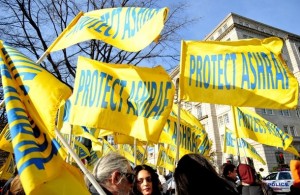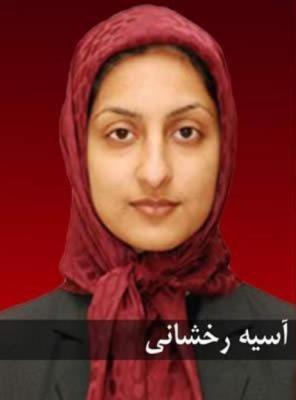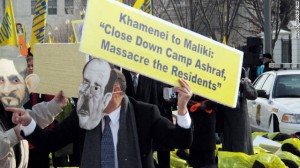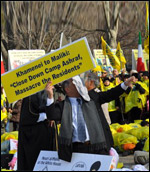NEW INTERNATIONALIST
It is rare that the US will find itself singing from the same hymn sheet as the brutal religious theocracy in Iran. As I write this letter, a peculiar and tragic piece of politics is being played out in Camp Ashraf, Iraq, which has, inconceivably, united these two opposite parties.
Camp Ashraf is home to 3,400 members of the MEK, Iran’s main opposition group. They have been fighting for decades to create a democratic state in Iran.
During the Clinton administration, the US government declared that the MEK were terrorists, in order to bring Iran and its apparently moderate president Khatami to the negotiation table. It was appeasement of the worst kind. Over the past decade the 4,000 parliamentarians across the globe who have shown solidarity with the MEK have managed to get the ‘terrorist’ designation removed from EU and British lists. But despite support from numerous members of congress, including former US presidential candidate Howard Dean, the US is still doing Iran’s bidding by keeping this classification.
This failed piece of foreign policy is now being used to murder innocent civilians in Camp Ashraf.
In early 2004, US armed forces took over security of the camp and gave personal assurances to each and every person living there, designating them as protected persons under the fourth Geneva Convention. Unfortunately, they have received anything but protection.
The security of the camp was passed over to the Iraqi government in 2009. Within days, Iranian intelligence officials were allowed onto the site and their campaign of torture and intimidation started. Iran’s influence in Iraq has been growing over the past few years. The vast majority of US soldiers die at the hands of Iranian made IEDs (improvised explosive device). The residents have had vital supplies, such as food, fuel and medicine, restricted causing unnecessary deaths. The worst of this illegal treatment has been two military attacks on the camp. In April 2011, the Iraqi army attacked and massacred 36 unarmed civilians. Video footage which was released by the residents showed Iraqi soldiers shooting residents in the head and neck from point-blank range using semi automatic weapons. UNAMI (United Nations Assistance Mission for Iraq) officials examined the deceased and confirmed the manner of their deaths. This tragic event was widely considered to be a war crime.
Unfortunately, one of the excuses which the Iraqi government has used is that these people are terrorists.
The Iraqi government and their puppet masters in Iran want MEK members to be removed the camp. Residents have declared that, despite living in Iraq for over 25 years, they are willing to go. The UN High Commissioner for Refugees (UNHCR) has announced that they are ready and waiting to assess each resident for refugee status. This would then allow them to be moved to third countries which would accept them.
Over the past few months the Iraqi government has refused the UNHCR access to camp residents. The route to a peaceful solution is available, but the reality is that leaders in Iraq and Iran are not looking for a peaceful ending. Iran realizes that it has the opportunity, and a willing ally, to wipe out its main opposition and they are hell-bent on achieving this.
Rather than allow the UNHCR access, the Iraqi government has announced that it will close the camp at the end of the year and that all residents will be relocated to other camps within Iraq. At the point of relocation, the UNHCR will be allowed access.
Residents have stated that they are only willing to be relocated within Iraq if these new locations are protected by UN blue helmets. In addition, they do not want to be moved until the UNHCR has recorded the names of every member of the camp prior to relocation. This is an important point.
Iranian security agents and their Iraqi counterparts have been working on an operation to murder many of these residents in transit, before any international body has recorded their details.
The reality is that Iraq’s treatment of these innocent civilians over the past few years renders any promise they make utterly worthless.
Following Iraqi President’s Nouri Al-Maliki’s visit to the Oval Office earlier this week, President Obama must now make it abundantly clear that Camp Ashraf’s residents must be treated humanely. Al-Maliki must abandon his end of year deadline, as well the idea of relocation. The UNHCR must be allowed access to the residents in Camp Ashraf. If these points are followed, the saga of Camp Ashraf could come to a peaceful end.
Saeid Zabeti’s family fled Iran following the 1979 revolution. He has six family members currently living at Camp Ashraf.
http://www.newint.org/blog/2011/12/15/camp-ashraf-threatened-closure/



